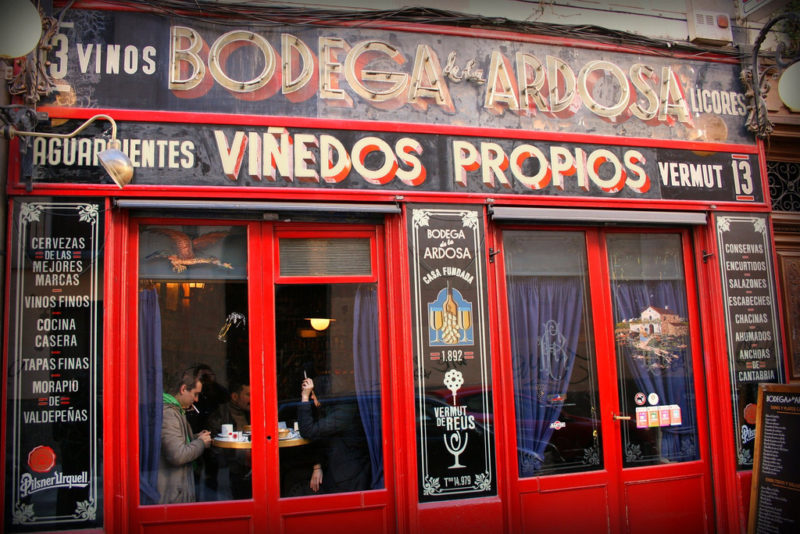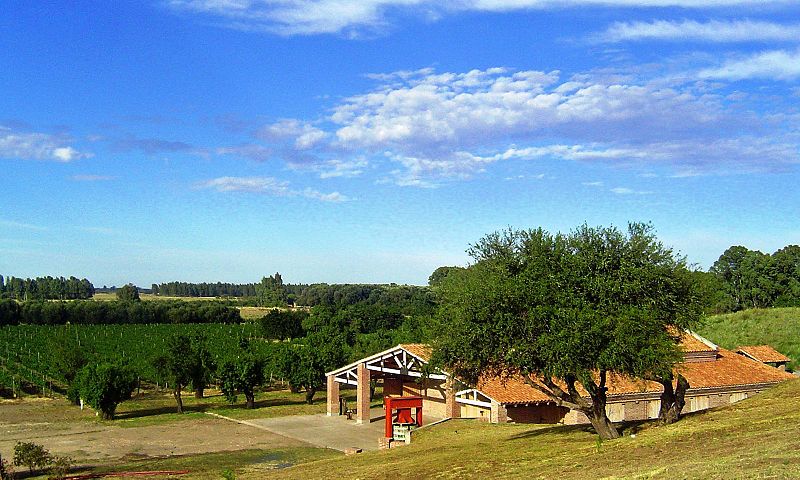Capítulo 1: Los Procesos Comerciales
1.4.2: Gramática-ubicación de adjetivos
 Bodegas la Ardosa, Madrid – Calle Colón – CC BY 2.0
Bodegas la Ardosa, Madrid – Calle Colón – CC BY 2.0
Explicación gramatical
Adjective placement.
In general, adjectives go after nouns in Spanish. All the previous examples, including the practice examples followed this general pattern. This contrasts with English where we generally put adjectives before the noun.
Spanish has a more flexible word order than English. We break the general Spanish pattern for a few reasons.
- Some adjectives change meaning when placed before or after a noun.
- Sometimes it is more poetic or pleasant sounding to put an adjective before the noun.
Examples of meaning changing adjectives:
Grande
- La gran ciudad (gran=important)
- La ciudad grande (grande=big or large)
Forming an adjective from a verb.
You can use verbs as a base for making an adjective. Generally this means using the participle form of the verb and then matching it in number and gender to its corresponding noun.
Forming the participle. Regular participles are the -ado/ido forms you have learned in the past when learning perfect forms. Here are examples of regular verbs:
- Hablar: hablado/hablada
- Comer: comido/comida
- Vivir: vivido/vivida
Irregular verbs have -to/-cho/-so forms. Here are a few examples:
- Abrir: abierto/abierta
- Hacer: hecho/hecha
- Decir: dicho/dicha
- Imprimir: impreso/impresa (this is the only irregular verb with the -so participle ending)
Here are some examples from your vocab list for this chapter:
- Establecer (to establish) > establecido/establecida (established)
- Es una marca establecida > It’s an established brand
- Invertir (to invest) > invertido/invertida
- Tengo dinero invertido en la empresa > I have money invested in the business.
- Valorar (to value) > valorado/valorada
- Es un producto altamente valorado > It’s a highly valued product.
And here are some examples from the texts you’ve already read. What verbs are used to form the adjectives from these examples? What do the adjectives in this section mean?
- “el sector vitivinícola europeo podría ser recuperado y salvado”
- “Hay pequeños pueblos y villas, como Napa, Yountville, Rutherford y Calistoga, esparcidos por estas bellas tierras agrícolas.”
 View of Al Este Bodega y Vinedos – Kroton2 – Public domain
View of Al Este Bodega y Vinedos – Kroton2 – Public domain

